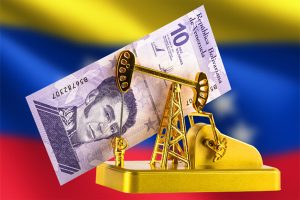
The energy transition debate has been largely dominated by this line of argument: Green energy is needed to address climate change, and households and business will benefit from it via lower prices. On Saturday, Isabel Schnabel, an influential member of the executive board of the European Central Bank, articulated another line of thought: the transition is needed, but’s likely to prove inflationary.
Schnabel, a German economist, argued that greenflation is very real and, not only is it not transitory, it’s likely to get worse. Central banks will need to react to it. Speaking at an ECB virtual panel over the weekend, she said: “While in the past energy prices often fell as quickly as they rose, the need to step up the fight against climate change may imply that fossil fuel prices will now not only have to stay elevated, but even have to keep rising if we are to meet the goals of the Paris climate agreement.
The comments signal a re-think among policymakers about the energy transition — already evident within the Biden administration, but now apparently spreading into Europe.
Many in the energy industry will be forgiven for schadenfreude: You can almost hear the collective “I told you so” from Houston. After all, if you reduce supply and don’t lower demand, prices have only one way to go: up.More fromWeb3 Takes Trust TooUniting Grand Theft Auto and FarmVille Is a Game ChangerFed Forced to Run Triple Option With Time Running OutGhislaine Maxwell’s Conviction Can Survive a Juror’s Disclosure
Or, as Schnabel put it: “At present, renewable energy has not yet proven sufficiently scalable to meet rapidly rising demand… The combination of insufficient production capacity of renewable energies in the short run, subdued investments in fossil fuels and rising carbon prices means that we risk facing a possibly protracted transition period during which the energy bill will be rising. Gas prices are a case in point.”
To be sure, Schnabel isn’t suggesting that governments should slow down the fight against climate change. She’s warning, however, that the transition will have unintended consequences. Until now, the ECB had focused mostly on the impact of climate change on financial stability, including the effect of stranded oil and gas assets, rather than on the consequences of the energy transition itself.Sponsored ContentThe Future of Alternative MaterialsYokogawa
The current spike in oil, coal, natural gas and electricity prices suggests Schnabel is right in widening the focus. Brent crude is again above $80 a barrel, and many traders believe that $100 is a question of when rather than if. In Europe, gas and electricity prices have risen to record levels, often trading at five-to-ten times above their 2010-2020 averages. And coal has surged to a record high too.
There’s more to come beyond energy commodities. As the world moves to electrify everything — from heating to driving — the commodities needed to power the green transition are in greater demand and, therefore, getting more expensive. Take lithium, a crucial element of electric car batteries: It has surged to a record. The same is true of copper, which is needed in every piece of electrical cable.
Greenflation will have fiscal and monetary consequences, Schnabel argues. Governments will need to support the families left behind as energy prices soar. She didn’t say much about businesses, but it’s clear that if Europe lets rising gas and electricity prices go unchecked, the region would lose its energy-intensive industries — from aluminum smelters to fertilizer producers. Central banks may have to abandon their traditional attitude of looking through energy price increases because the transition is likely to mean, on balance, both higher aggregated demand — via investment in green alternatives to fossil fuels — and also higher inflation.
In that regard, Schnabel is much closer to what officials think in Washington than in Brussels and at the International Energy Agency. For months, the European Commission has played down the risk around the energy transition, seeing only positives. Fatih Birol, the head of the IEA, has done largely the same. 1Opinion. Data. More Data.Get the most important Bloomberg Opinion pieces in one email.EmailSign UpBloomberg may send me offers and promotions.By submitting my information, I agree to the Privacy Policy and Terms of Service.
The White House, however, has fined-tuned its energy transition message over the last few months. “If we want to solve climate change we need to do so while at the same time insulating the global economy from extreme energy shocks,” said Amos Hochstein, the top American energy diplomat, in October. The Biden administration has called on OPEC+ to boost production, and even told its domestic oil and gas industry that more drilling was welcome.
Schnabel’s comments probably are an indication of the changing attitude in Europe. Record gas and electricity prices, plus eurozone inflation hitting 5%, probably helped. To find solutions, you first need to admit there’s a problem. For the first time, the ECB is signaling there’s an issue. The ball is now in the European Commission’s court.
Javier Blas is a Bloomberg Opinion columnist covering energy and commodities. He previously was commodities editor at the Financial Times and is the coauthor of «The World for Sale: Money, Power, and the Traders Who Barter the Earth’s Resources.»
Bloomberg Opinion 01/10/2021








